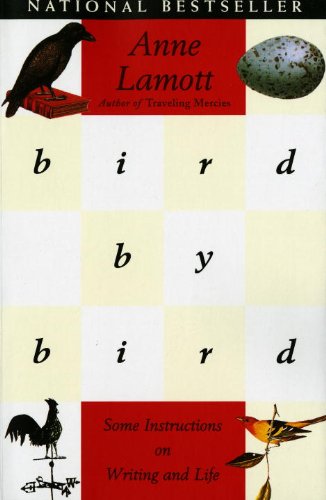
photo by marcelsteffenandreas
by Lynda Nash
It is my theory that a writer isn’t a ‘proper writer’ till he/she starts avoiding writing. Writing takes time, tenacity and tears and often you’ll find that washing the dishes or weeding the lawn are suddenly attractive activities that need your immediate attention. It makes no difference whether you’re just beginning your writerly journey or whether you’ve been writing for years, there are certain ‘challenges’ that every writer has to face.
Beginners often don’t know where to start and experienced writers often find they’ve started but they can’t continue. In both cases, it’s fear that’s creating the barricade – it’s difficult to write when your inner critic is telling you that your ideas are stupid, that you couldn’t string a decent sentence together to save your life, and that if you were a ‘proper writer’ you wouldn’t get blocked in the first place. Actually, labelling this challenge ‘Writer’s Block’ only seems to make matters worse (if the problem has a name it must be real). And when you see your words staring back at you from a computer screen, it is all too easy to read over them, start editing them or to delete the whole lot.
So how do you write when you can’t?
I have an exercise I call ‘Writing In The Dark’. The aim of the exercise is to take the ‘fear’ out of writing, that is, the fear of getting it wrong.
You’ll need: pen and paper and a dimly lit room. Or, if you really prefer to type, throw a towel over your computer screen. Your inner critic cannot criticise if it can’t see what you’re writing.
One thing we writers forget is that we are masters of our blank page universe. We don’t have to start at the beginning or to write in chronological order. We don’t have to always spell or punctuate correctly and if we want to throw grammar out the window we can.
Try it out: With your pen and paper in your dimly lit room, or with your fingers on your keyboard in front of your masked screen, think of something you are currently writing that’s got you particularly stuck. Or an idea you really want to bring to life but don’t know how. Start with one word: The. This is free writing with a twist because you are writing freely yet continuing your work-in-progress or following an idea (free writing is usually idealess).
If you want to write the end of your story first, go ahead. If you can’t stop thinking about the action in the middle, then start there. If you’re writing about a character having dinner on a veranda in Spain and you have a crazy idea that they should be wearing a fur coat and flippers, then go with it. Enjoy writing badly. It will feel weird at first because we’re so used to seeing our words in front of us but, after a while, you will notice how liberating it is not to have to constantly correct yourself. Unless you are very blessed or superhuman, nothing you write will go down on the page error-free and sparkling the first time, and nor should it. Never forget you are writing what Anne Lamott calls ‘the shitty first draft’. (Actually, it’s worth getting yourself a copy of her book Bird By Bird to dip into for encouragement when your writing gets tough.)
 A second strategy for ‘how to write when you can’t’ is get someone else to do it. I don’t mean you should knock on your neighbour’s door or stop someone in the street, tell them your idea and say, ‘I want ten thousand words by Tuesday’. It’s simpler than that. You have the ‘someone else’ right there at your finger tips. Your character.
A second strategy for ‘how to write when you can’t’ is get someone else to do it. I don’t mean you should knock on your neighbour’s door or stop someone in the street, tell them your idea and say, ‘I want ten thousand words by Tuesday’. It’s simpler than that. You have the ‘someone else’ right there at your finger tips. Your character.
As well as being boss of our blank page universe, we also think we are boss of our characters. We think they should do as we tell them. What we don’t acknowledge is that our job would be much easier if we let our characters tell the story rather than us having to do so. That may sound like a contradiction in terms because, whichever way you look at it, we are doing the writing. But, again, it’s all about disarming your inner critic.
As part of my PGCE course we were required to write numerous reflective essays. I hated them because I hated writing about myself, my strengths, weaknesses and feelings. The only way I could get myself to write those essays was to pretend they were fiction. I was the fictional character telling the fictional story. No one knew my strategy, and it worked. By letting your character tell the story you free yourself to write whatever you want to because it’s not you that’s dictating. If your character wants to say ‘like’ after every sentence, then so be it. If they want to describe a beautiful rose garden as ‘diabolical and reeking of manure’, let them, if that’s how they feel about it. This strategy works particularly well when writing description, as each character will view a scene through different eyes and they won’t necessarily have the same opinion as you. Getting the character to describe what they see saves you the job of having to describe it yourself. There is more about this in ‘Don’t Be Afraid to Get it Wrong‘.
A third strategy for getting those words flowing is show your work to someone. This, too, may sound like a contradiction; if writing for an audience puts the fear of Hermes (the inventor of writing) into you, why would you ever let anyone see what you’ve written?
Writing is a solitary business and we writers spend vast amounts of time alone, even when we’re not alone. I have written in a room with the television on, children playing and cats meowing, and in the pub while my other half watched the rugby. Sometimes it can feel that the words come out of our heads onto the page and there is no one (apart from our inner critic who, as we know, is not our best friend) there to tell us if our scenes have enough action, if our story’s moving in the right direction, or if our characters are three dimensional. All writers need feedback. But not just any feedback – it’s no good showing your work to your granny and expecting her to be anything less than complimentary, and, in my experience, showing your work to your partner can be worse than letting your inner critic have free reign for the day (‘I was only trying to be helpful,’ they say as you lie in bed snivelling, with the duvet over your head).
Writers need other writers. There are hundreds of online writing forums where you can give and receive feedback, and these are great short term, but nothing beats sitting down and discussing your ideas, plot plans and purple prose one-to-one with a fellow writer or a small group of like-minded people. Feedback is like a shot of adrenalin to the writing muscles. In times of desperation, when I want to write and can’t, I’ve phoned a friend and asked them to read what I’ve written. There is something about attaching a work-in-progress to an email and clicking send that ignites the spark that gets me writing again. It must be magic – or the muse playing tricks.
Oh, and one more thing, be proactive, don’t sit around waiting for inspiration to strike. The biggest block to writing is words themselves and once you let one out the rest can follow – hold them in and you become creatively constipated, and the best cure for that is to write freely and badly. In other words write shit. William Goldman, American novelist, playwright, and screenwriter, once said: ‘The easiest thing to do on earth is not write.’ Which is why all writers should know a few strategies to get the job done.

